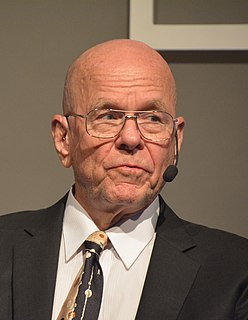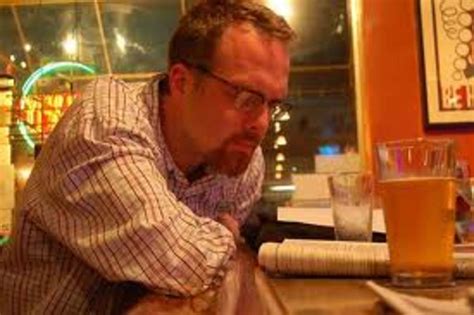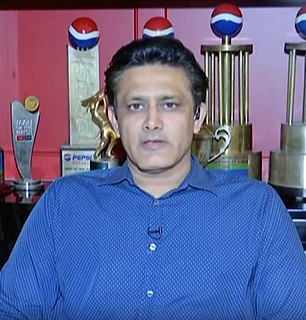A Quote by Karl Barry Sharpless
We have a word game in English called "Twenty questions." To play Twenty Questions, one player imagines some object, and the other players must guess what it is by asking questions that can be answered with a "yes" or a "no." I imagine every language has a similar game, and, for those of us who speak the language of science, the game is called The Scientific Method.
Related Quotes
I have never said, as is sometimes believed, or even suggested that lower-class children should not learn the so-called educated norm of the Portuguese language of Brazil. What I have said is that the problems of language always involve ideological questions and, along with them, questions of power.
Science, at its core, is simply a method of practical logic that tests hypotheses against experience. Scientism, by contrast, is the worldview and value system that insists that the questions the scientific method can answer are the most important questions human beings can ask, and that the picture of the world yielded by science is a better approximation to reality than any other.
What are your fees?" inquired Guyal cautiously. "I respond to three questions," stated the augur. "For twenty terces I phrase the answer in clear and actionable language; for ten I use the language of cant, which occasionally admits of ambiguity; for five, I speak a parable which you must interpret as you will; and for one terce, I babble in an unknown tongue.
In general, questions are fine; you can always seize upon the parts of them that interest you and concentrate on answering those. And one has to remember when answering questions that asking questions isn't easy either, and for someone who's quite shy to stand up in an audience to speak takes some courage.
I gravitate toward the larger worldview questions such as, Why are we here? What are we supposed to be doing? What does it mean to know another person? To love someone? Of course, those questions are sort of in the background as I'm playing with language in the foreground, but those are the informing questions.
In science we see progress. In art there is no progress. In art the questions have always been the same. From the beginning of time till now, we are always asking the same questions. There are very few. We are looking for God, we are asking why we die, we are contemplating sex and the beauty of nature. The only thing that changes is that, in each period of questioning, we speak with the language of our time.
If you don't put the spiritual and religious dimension into our political conversation, you won't be asking the really big and important question. If you don't bring in values and religion, you'll be asking superficial questions. What is life all about? What is our relationship to God? These are the important questions. What is our obligation to one another and community? If we don't ask those questions, the residual questions that we're asking aren't as interesting.
[In] the realm of science, ... what we have achieved will be obsolete in ten, twenty or fifty years. That is the fate, indeed, that is the very meaning of scientific work. ... Every scientific "fulfillment" raises new "questions" and cries out to be surpassed rendered obsolete. Everyone who wishes to serve science has to resign himself to this.
Modern acting is method acting, most of it. And there are sort of different schools, so I guess I'm not really from one school or another. I had a number of different teachers but they were all kind of drawing from the same pool, which is - What do you want? What are you doing to get what you want? And, what is in the way? These are basic acting questions. Knowing the answers to those questions. So you're talking about objectives and actions and obstacles. That's a sort of shorthand that gives you a language.






































